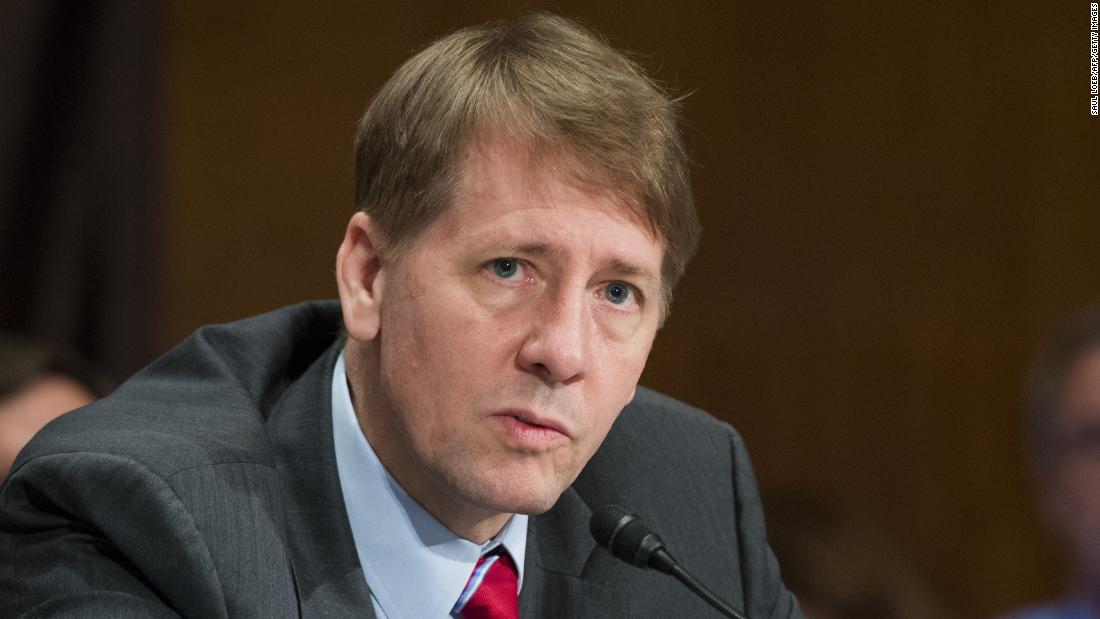
Biden administration taps Richard Cordray as student loan chief | National Media Agency in Michigan
National Media Agency in Michigan | Apadana Media
The appointment puts Cordray, a progressive ally and former director of the Consumer Financial Protection Bureau, at the center of a heated debate over whether the federal government should cancel some student debt.
The Biden administration has faced pressure from several Democratic lawmakers to cancel $50,000 per student loan borrower. President Joe Biden, meanwhile, has expressed support for canceling $10,000 per borrower, and has also indicated that he believes Congress should make changes through legislation, which would be harder to undo.
Cordray has close ties to Democratic Sen. Elizabeth Warren of Massachusetts, who is leading the push to cancel $50,000 in student debt. Warren spearheaded the creation of the Consumer Financial Protection Bureau during the Obama administration and Cordray was tapped as the agency’s first director.
“I’m very glad he will get to apply his fearlessness and expertise to protecting student loan borrowers and bringing much needed accountability to the federal student loan program,” Warren said in a statement Monday.
She had called for the resignation of Trump administration holdover Mark Brown, the former chief operating officer of federal student aid. He stepped down earlier this year.
Cordray has been vocal about how he believes student debt is having a negative effect on the broader economy.
“The weight and the anxiety of student loans not only take a huge emotional toll but also hold young people back, making them less willing to take risks, such as switching jobs or professions, moving to a new place, or starting a business rather than earning a steady paycheck,” he wrote in his book, “Watchdog.”
During Cordray’s tenure at the Consumer Financial Protection Bureau, he made it a priority to protect student loan borrowers. The agency secured more than $480 million in debt forgiveness for borrowers who had taken out loans to go to Corinthian College, a now-defunct for-profit college. It also sued Navient, one of the biggest federal student loan servicers, for allegedly processing payments incorrectly. Navient has denied the allegations and the lawsuit is ongoing.
Cordray battled endless calls for his firing after President Donald Trump took office in 2017. Cordray remained at the helm until November of that year, stepping down several months before his term was set to end. His departure was widely thought to be in preparation for his 2018 Ohio gubernatorial run, which was ultimately unsuccessful.
Republican Rep. Virginia Foxx of North Carolina, the ranking member of the House Education and Labor Committee, said in a statement Monday that she is “skeptical that a failed Democrat politician, who has a history of getting consumed by politics instead of caring for consumers, has the capability and serious character required to carry out the duties” of the position.
In a statement announcing Cordray’s selection, Education Secretary Miguel Cardona pointed to Cordray’s “strong track record as a dedicated public servant who can tackle big challenges and get results.”
“I am thrilled that Richard Cordray will be joining the Department of Education as the Chief Operating Officer of Federal Student Aid. It is critical that students and student loan borrowers can depend on the Department of Education for help paying for college, support in repaying loans, and strong oversight of postsecondary institutions,” Cardona said.
Cordray will face a backlog of debt forgiveness applications from borrowers who claim that they were defrauded by their colleges. Former Education Secretary Betsy DeVos allowed more than 200,000 of these claims, known as borrower defense to repayment, to pile up as she sought to rewrite the policy. Processing stalled, leaving some people waiting throughout the entire Trump administration to hear whether they’re eligible for debt relief.
During her tenure, DeVos also changed the forgiveness calculation, resulting in only partial debt relief for eligible borrowers depending on their current incomes. The Biden administration has already reversed that policy, delivering an additional $1 billion in relief to 73,000 people.
There is currently a pause on all federal student loan payments, a Covid relief benefit put in place by Congress last year and extended by the Biden administration though September.
The administration has also waived a paperwork requirement during the pandemic for borrowers with disabilities to receive approval for loan forgiveness. But borrower advocates say much more could be done to help these borrowers, like automatically discharging their debt.









